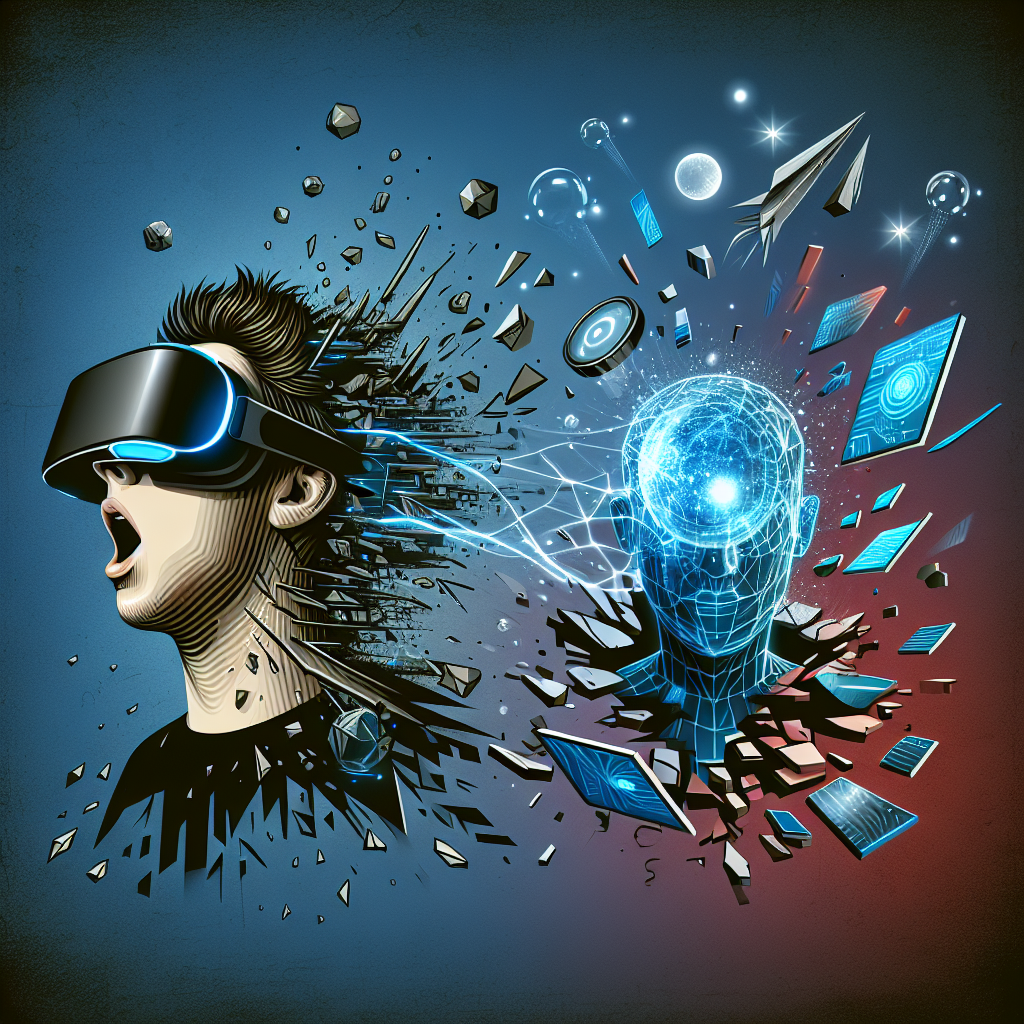Are We Living in a Simulation? Theories That Challenge Reality
The Simulation Hypothesis Explained
The Simulation Hypothesis suggests that reality, as we perceive it, might be a sophisticated simulation created by an advanced civilization. This concept isn’t just confined to science fiction; it intersects with philosophy, physics, and computer science, leading to profound questions about existence, consciousness, and reality itself.
Historical Context
Philosophers have long debated the nature of reality. René Descartes, in the 17th century, postulated that reality might be an illusion manipulated by an evil demon, while Plato’s Allegory of the Cave suggested that humans perceive only shadows of the true forms of objects. Although these ideas predated digital technology, they reflect an enduring inquiry into the nature of existence.
Technological Foundations
The argument for the Simulation Hypothesis gained traction with advancements in virtual reality, artificial intelligence (AI), and computer simulations. As technology continues to innovate, the line between what is real and what is simulated blurs. If we consider how rapidly gaming technology evolves, the question arises: how long will it be before our simulated environments are indistinguishable from physical reality?
Nick Bostrom’s Argument
Nick Bostrom, a philosopher at Oxford University, is pivotal in discussing the Simulation Hypothesis. In his 2003 paper, “Are You Living in a Computer Simulation?”, he puts forth a trilemma. Bostrom’s argument suggests:
- Almost all civilizations at our level of technological development go extinct before becoming technologically mature.
- Almost no technologically mature civilizations are interested in running simulations of the past.
- We are almost certainly living in a simulation.
Bostrom’s theory posits that if it’s possible for advanced civilizations to run simulations, the number of simulated realities would far exceed the number of actual realities, making it statistically likely that we reside within a simulation.
Scientific Perspectives
Several scientific theorists and physicists have weighed in on the Simulation Hypothesis. For example, physicist David Deutsch argues that the universe is indeed computational and that understanding the universe could reveal that computations are taking place at the very fabric of reality. Quantum mechanics, with its principles of superposition and entanglement, further complicates our understanding and offers fertile ground for simulation theories.
The Role of Quantum Mechanics
Quantum mechanics lends a unique framework for discussing simulation. The Observer Effect reveals that a quantum system changes when observed, suggesting reality doesn’t exist independently until it is measured. This leads to the philosophical dilemma: could we be perceiving a reality that is only partially “rendered” until we observe it? If we are in a simulation, this phenomenon might align with a programming decision to conserve computational resources.
Ethical Implications
Living in a simulation poses ethical questions. If we are mere constructs in a program, does that diminish the significance of human experience and suffering? How do morality and free will factor into a simulation framework? These questions challenge our understanding of compassion, responsibility, and individuality.
Simulation as an Exploration Tool
One could argue that the Simulation Hypothesis offers a means of exploring moral and philosophical dilemmas. By simulating different scenarios, advanced civilizations could examine outcomes without the consequences inherent to real-life decisions. This aligns with discussions around the ethical implications of AI, virtual realities, and gaming.
Multiverse Theory and Simulations
The Simulation Hypothesis links intriguingly with the Multiverse Theory, which proposes that multiple, perhaps infinite, universes exist alongside ours. In this framework, our universe could be a single simulation among countless others. Each universe could represent different parameters, laws of physics, or timelines, making the idea of simulations richer and exponentially more complex.
Counterarguments to the Simulation Hypothesis
Critics argue against the Simulation Hypothesis by pointing to the complexity of creating a comprehensive simulation that accurately replicates the intricacies of human experience. The notion that an advanced civilization would expend significant resources on a simulation of our reality also raises questions. Furthermore, the possibility that our understanding of technology limits our conception of advanced civilizations can’t be overlooked.
Philosophical Implications
The Simulation Hypothesis beckons philosophical inquiry regarding consciousness and existence. If we are in a simulation, what is consciousness? Can a conscious experience arise from algorithmic processes? These questions create a paradox in understanding the essence of being. Philosophers explore the ramifications of existence as a product of intelligence—a reconfiguration of the ancient ‘what is reality’ question.
Pop Culture Reflections
Cultural depictions of simulated realities, such as “The Matrix” or “Westworld,” have popularized the concept, stimulating public interest and blending philosophical inquiry with entertainment. This narrative framework encourages audiences to contemplate their existence and the possibility of constructed realities.
Practical Implications
As technology advances and virtual realities become more immersive, the practical implications of accepting the Simulation Hypothesis must be considered. Modern advancements in AI and VR are already impacting sectors like education, training, and entertainment—what might the future hold if we accept that realistic simulations are possible?
The Role of Popular Figures
Prominent figures, including Elon Musk and Neil deGrasse Tyson, have publicly entertained the idea of living in a simulation. Musk has argued that given the trajectory of technological advancement, the likelihood of inhabiting a simulated universe is substantial. These endorsements from influential individuals often spur public discourse and broaden interest in philosophical exploration.
The Future of Simulation Theory
As research progresses, the Simulation Hypothesis continues to ignite debates among scientists, philosophers, and the general public. With increasing capability and sophistication in developing virtual environments, humanity may one day be able to simulate consciousness, effectively challenging or reinforcing the tenets of this theory.
Conclusion
The Simulation Hypothesis captivates thinkers across disciplines, suggesting that reality may not be what it seems. Whether advocating for or against the theory, the fundamental questions it raises about existence, consciousness, and technological advancement will likely resonate for years to come. As we progress into an era defined by rapid technological evolution, our understanding of reality may shift dramatically, challenging assumptions and reshaping philosophical discussions.





Leave a Reply